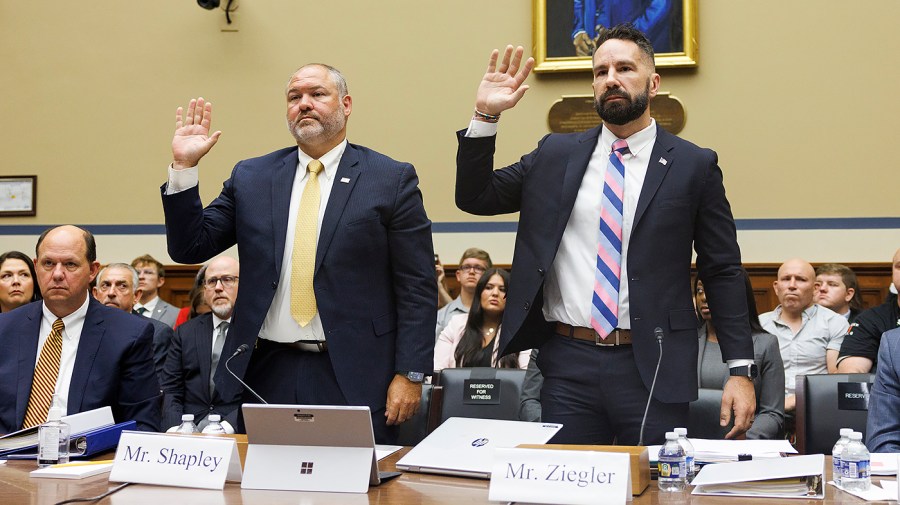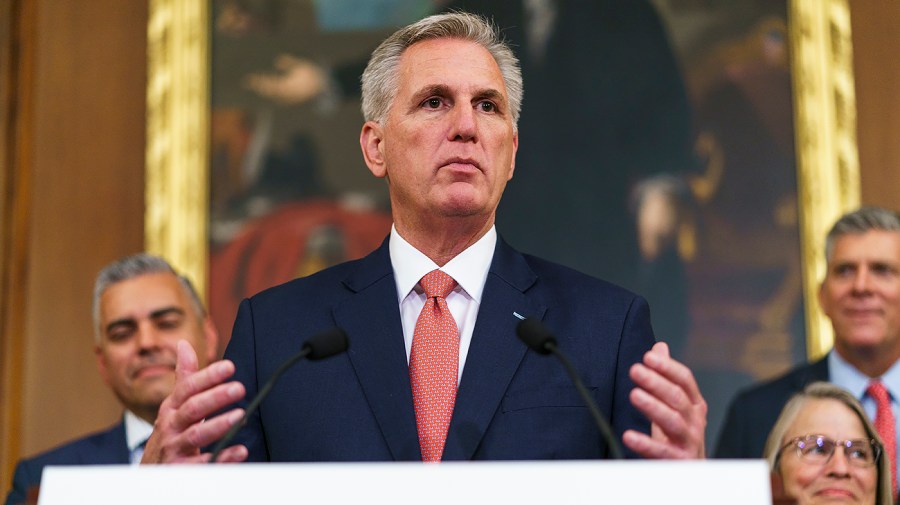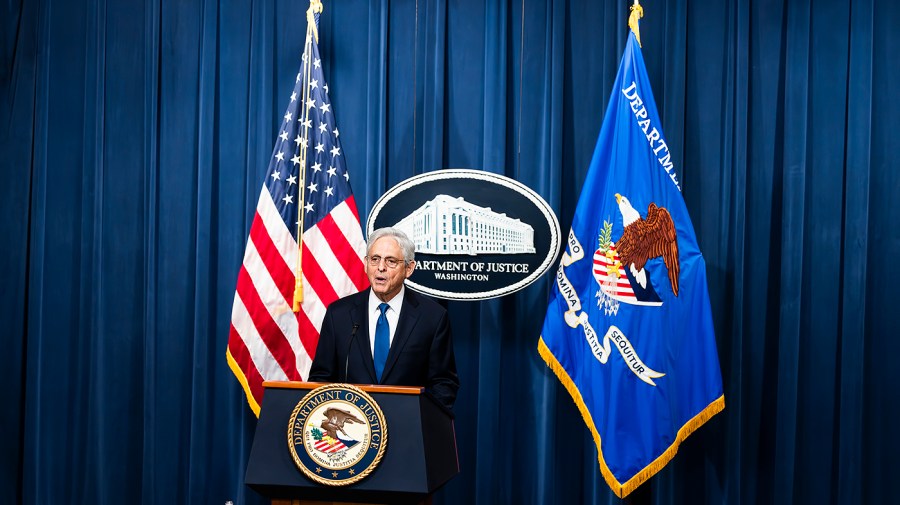Special counsel named in Hunter Biden case: Four things to know

Attorney General Merrick Garland’s move to elevate U.S. Attorney for Delaware David Weiss to special counsel in the Hunter Biden investigation sits against the backdrop of multiple GOP investigations, puts the focus back on two IRS whistleblowers and comes as a plea deal for Biden over tax issues has evaporated.
Garland made the surprise announcement on Friday and was immediately met with Republican backlash and plenty of questions.
Here are four things to know in light of the announcement.
Whistleblower testimony and GOP investigations

Garland’s announcement comes as the House GOP intensifies multiple probes into issues surrounding Hunter Biden, which were further fueled by testimony from two IRS whistleblowers who criticized how Weiss and the Department of Justice (DOJ) handled the tax crimes investigation into the president’s son.
IRS investigators Gary Shapley and Joseph Ziegler claimed the Justice Department slow-walked the Hunter Biden investigation, gave him preferential treatment, and declined to pursue charges in California and Washington, D.C., where there was stronger evidence.
The whistleblowers also alleged Weiss sought and was denied special counsel status. Both Weiss and Garland have denied he did so, saying that if he desired a special prosecutorial status, it would be approved.
Shapley and Ziegler gave closed-door interviews to the House Ways and Means Committee in May and early June, and their testimony was made public in late June after news that Hunter Biden and the DOJ struck a plea deal, which has since fallen apart.
The House Judiciary Committee has probed the DOJ on the whistleblower claims, as well as put focus on whether the federal government had any role in suppressing dissemination of a laptop hard drive that purportedly belonged to Hunter Biden.
At the same time, the House Oversight Committee is investigating Hunter Biden’s foreign business dealings while his father was vice president.
Speaker Kevin McCarthy (R-Calif.) has floated an impeachment inquiry into Garland over disputes over how the case was handled, and a possible inquiry into President Biden over issues surrounding his family’s foreign business dealings.
Republicans rip special counsel move despite previous calls

Some Republicans previously pushed Garland to appoint a special counsel in the Hunter Biden investigation, with 33 Senate Republicans signing a letter requesting that Weiss be elevated to that role last November.
But in the wake of Friday’s announcement, Republicans overwhelmingly raised alarms about how a special counsel could interfere with their own investigations.
The move to elevate Weiss, in particular, has also peeved Republicans, given their previous criticisms about how he handled the case and a plea agreement that later fell apart in court.
“If Weiss negotiated the sweetheart deal that couldn’t get approved, how can he be trusted as a Special Counsel?” Speaker Kevin McCarthy (R-Calif.) said on X, the social media platform previously known as Twitter.
House Oversight and Accountability Committee Chairman James Comer (R-Ky.), whose panel has been leading probes into the Biden family’s business dealings, said in a statement that the special counsel appointment is “part of the Justice Department’s efforts to attempt a Biden family coverup.”
Rep. Marjorie Taylor Greene (R-Ga.) spelled out the GOP fears: “Every subpoena, every record request, every transcribed interview, or any other effort in an impeachment inquiry will be be blocked by this corrupt and unlawful Special Counsel under the guise of an ‘investigation.’”
The move also generated criticism from Trump’s campaign, which accused Weiss of changing where he might file charges in order “to move the case to a more Democrat-friendly venue,” despite the whistleblowers’ claims that cases could be stronger there.
Hunter Biden’s legal woes multiply

Garland made his announcement just minutes before a flurry of activity in Hunter Biden’s Delaware case, further signs a plea deal relating to his failure to pay taxes has been nixed as prosecutors signaled an interest in bringing charges elsewhere.
The Justice Department said the two sides are at an “impasse” in reaching a new plea deal for some tax charges after a judge had rejected a preliminary agreement last month. The original deal would have Biden agree to plead guilty to two tax offenses while also entering a pretrial diversion program on a gun charge.
“The Government now believes that the case will not resolve short of a trial,” prosecutors wrote in court filings on Friday.
In the hearing last month, the judge asked if the proposed agreement meant that Biden could still be charged with a hypothetical violation of the Foreign Agents Registration Act. Prosecutors said yes, but Biden’s defense said no.
The plea deal’s collapse combined with the announcement of the special counsel — which gives Weiss greater authority to speedily charge Biden — would appear to put the president’s son into deeper legal jeopardy.
But Chris Clark, counsel for Hunter Biden, downplayed the announcement of Weiss being elevated to special counsel.
“This doesn’t change our understanding of Mr. Wiess’ authority over the 5-year investigation into Mr. Biden,” Clark said in a statement.
“For years, both Mr. Weiss and the Department have assured us and the public that Mr. Weiss had more authority than a special counsel and full authority to negotiate a resolution of his investigation – which has been done,” Clark said. “Whether in Delaware, Washington, D.C. or anywhere else, we expect a fair resolution not infected by politics and we’ll do what is necessary on behalf of Mr. Biden to achieve that.”
Spotlight on jurisdiction disputes

Weiss obtaining special counsel status draws attention to concerns raised by the IRS whistleblowers over whether he previously had authority to bring charges against Hunter Biden outside of Delaware.
According to Shapley, the U.S. District Attorney in Washington, D.C. declined to bring charges in the Hunter Biden case, and then Weiss said in an Oct. 7, 2022 meeting that he was “not the deciding person on whether charges are filed.” The statute of limitations for relevant charges expired shortly after that, and Shapley said that the district attorney in California had also declined to bring other charges.
Both Weiss and Garland, though, have told Congress that Weiss had full authority to make referrals to other districts and “had never been denied authority to bring charges in any jurisdiction.”
Garland on Friday reiterated that Weiss had broad authority even before being appointed special counsel.
“In February 2021, US Attorney Weiss was asked to remain as US Attorney for the District of Delaware and in that capacity to continue to lead the investigation. As I said before, Mr. Weiss would be permitted to continue his investigation, take any investigative steps he wanted and make the decision whether to prosecute in any district,” Garland said.
Making Weiss a special counsel, Garland said, “affords the prosecutors, agents and analysts working on this matter the ability to proceed with their work expeditiously and to make decisions indisputably guided only by the facts and the law.”
Copyright 2023 Nexstar Media Inc. All rights reserved. This material may not be published, broadcast, rewritten, or redistributed. Regular the hill posts







